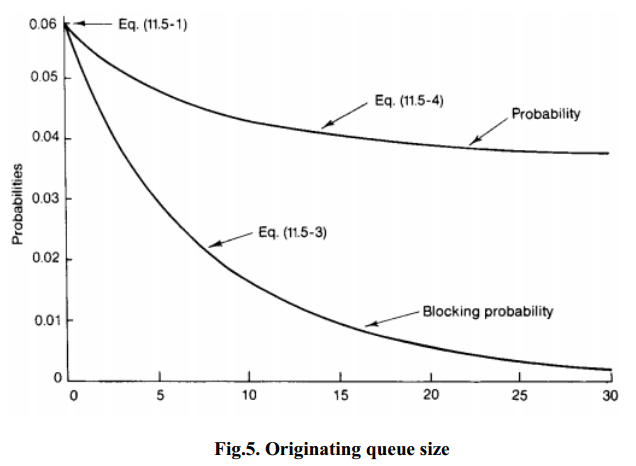rite about forced handoff
5. Write about forced handoff
A forced handoff is defined as a handoff that would normally occur but is prevented from happening, or a handoff that should not occur but is forced to happen.
Controlling a Handoff:
The cell site can assign a low handoff threshold in a cell to keep a mobile unit in a cell longer or assign a high handoff threshold level to request a handoff earlier. The MSO also can control a handoff by making either a handoff earlier or later, after receiving a handoff request from a cell site.
Creating a Handoff:
In this case, the cell site does not request a handoff but the MSO finds that some cells are too congested while others are not. Then, the MSO can request call sites to create early handoffs for those congested cells. In other words, a cell site has to follow the MSO’s order and increase the handoff threshold to push the mobile units at the new boundary and to handoff earlier.
Queuing of handoff:
Queuing of handoffs is more effective than two-threshold-level handoffs. The MSO will queue the requests of handoff calls instead of rejecting them if the new cell sites are busy. A queuing scheme becomes effective only when the requests for handoffs arrive at the MSO in batches or bundles. If handoff requests arrive at the MSO uniformly, then the queuing scheme is not needed. Before showing the equations, let us define the parameters as follows. 1/µ average calling time in seconds, including new calls and handoff calls in each cell
λ1 arrival rate (λ1 calls per second) for originating calls
λ2 arrival rate (λ2 handoff calls per second) for handoff calls
M1 size of queue for originating calls
M2 size of queue for handoff calls
N number of voice channels
a (λ1 + λ2)/µ
b1 λ1/µ
b2 λ2/µ
The following analysis can be used to see the improvement. We are analyzing three cases.
1. No queuing on either the originating calls or the handoff calls. The blocking for either an originating call or a handoff call is
2. Queuing the originating calls but not the handoff calls. The blocking probability for originating calls is
3. Queuing the handoff calls but not the originating calls. The blocking probability for handoff calls is
 |
| Originating queue size |
We have seen (Fig.5.) with queuing of originating calls only, the probability of blocking is reduced. However, queuing of originating calls results in increased blocking probability on handoff calls, and this is a drawback. With queuing of handoff calls only, blocking probability is reduced from 5.9 to 0.1 percent by using one queue space. Therefore it is very worthwhile to implement a simple queue (one space) for handoff calls. Adding queues in handoff calls does not affect the blocking probability of originating calls. However, we should always be aware that queuing for the handoff is more important than queuing for those initiating calls on assigned voice channels because call drops upset customers more than call blockings.




